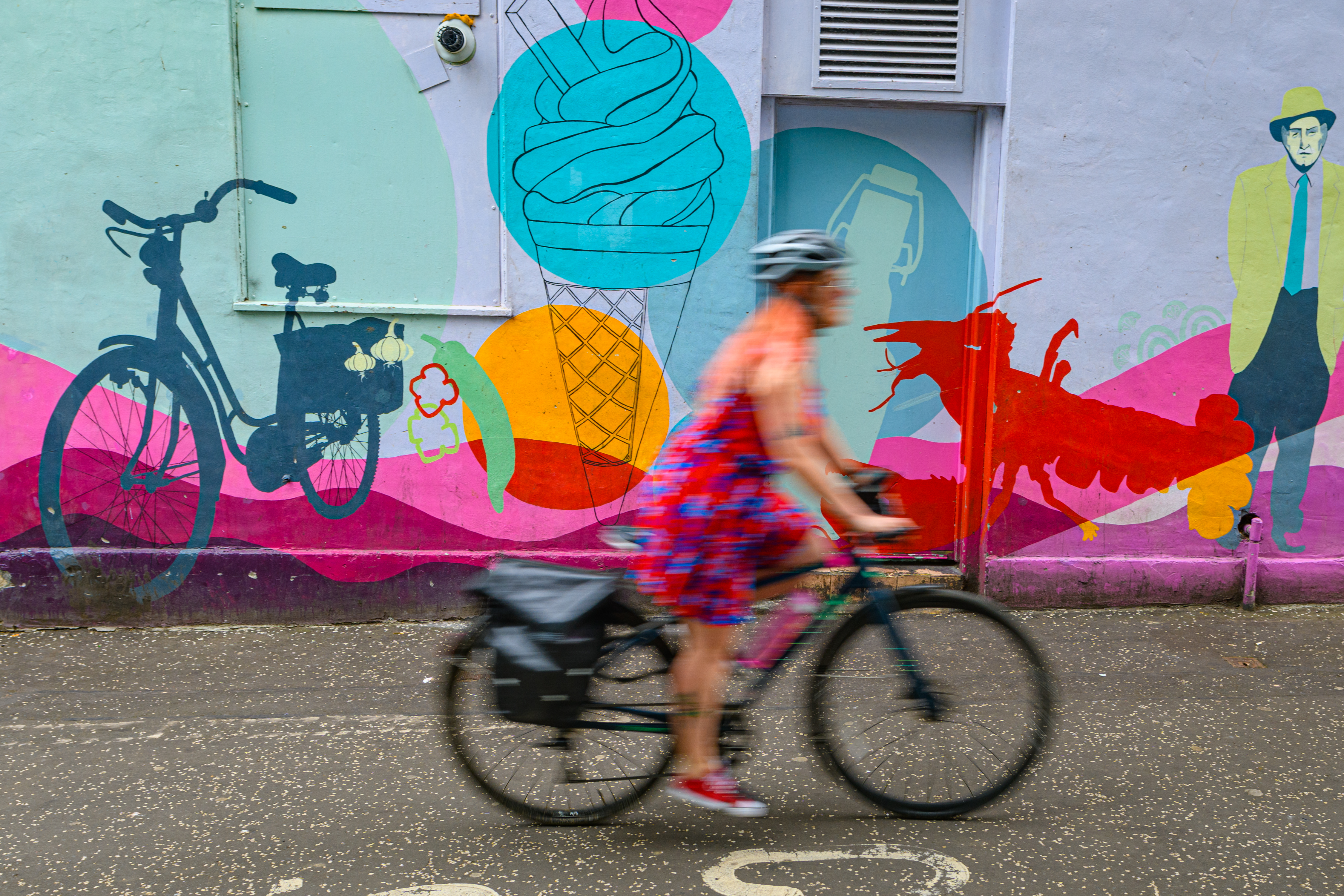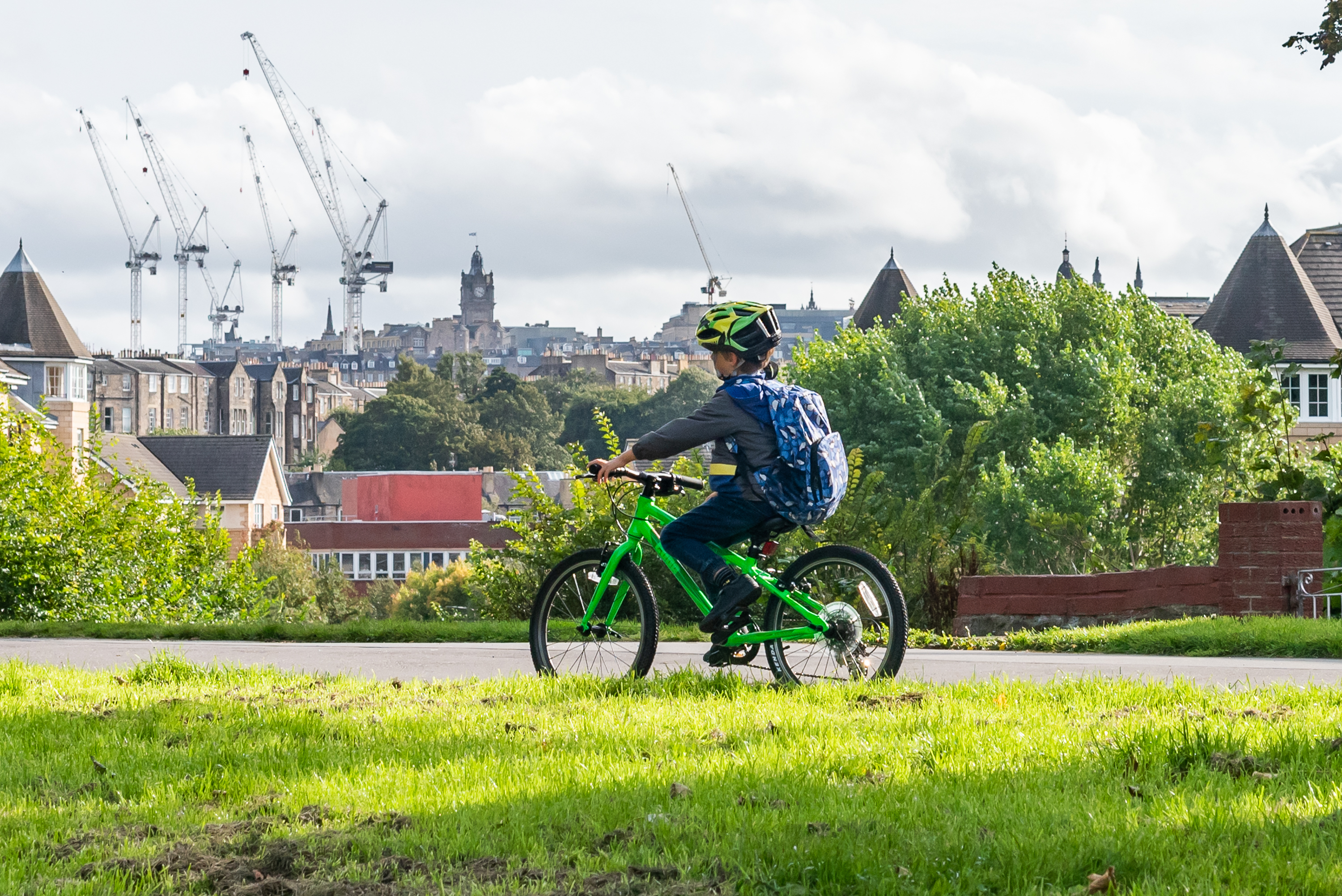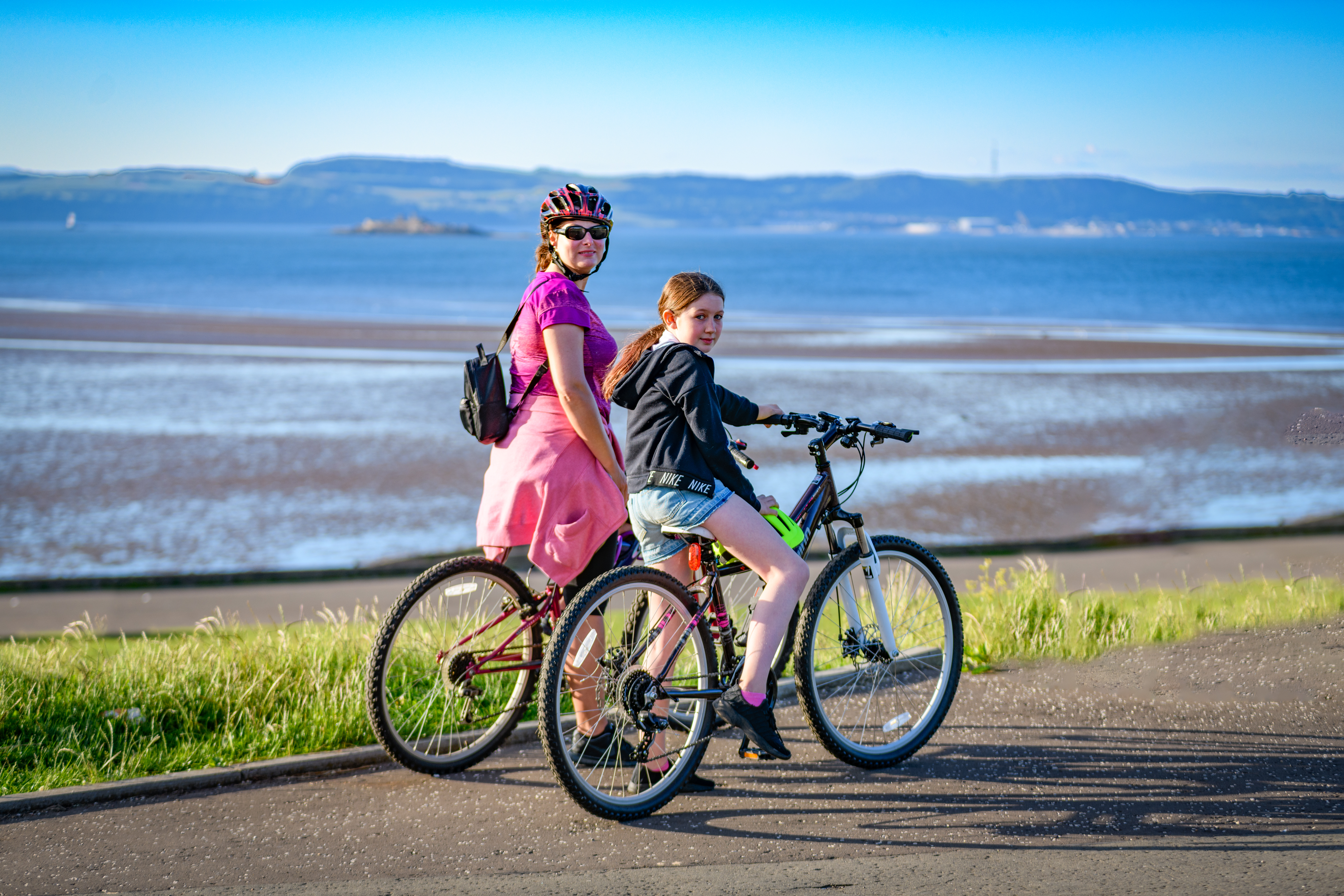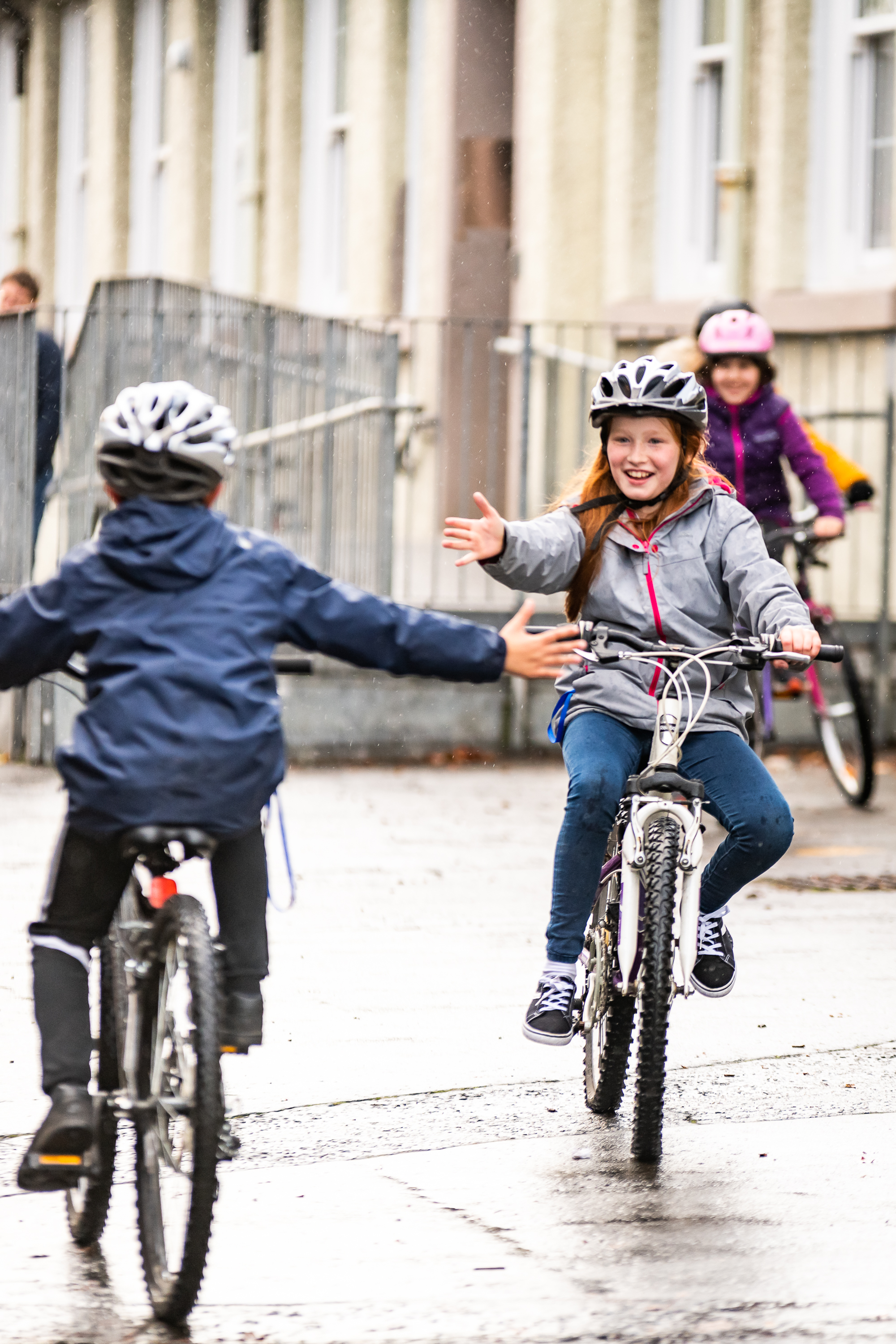Scottish parties share vision for growing cycling and sustainable travel

***Updated on 27 April to reflect that the Scottish National Party's manifesto funding commitment is equivalent to approximately 5.5% of the overall transport budget.***
Scotland’s five main political parties demonstrated a cross-party commitment to active travel at an online hustings last night, held ahead of the Scottish Parliament elections on 6 May.
Transport spokespersons for each party committed to significantly increase funding for cycling, as well as creating more safe space for cycling, walking and wheeling.
The event, organised by Cycling UK and Pedal on Parliament, allowed attendees to ask the parties about their plans to promote and facilitate cycling and sustainable transport.
The party representatives taking part were:
- Jane Ann Liston, Scottish Liberal Democrats candidate for Mid Fife and Glenrothes
- Michael Matheson, Scottish National Party, cabinet secretary for Transport, Infrastructure and Connectivity
- Alex Rowley, Scottish Labour spokesperson for transport, connectivity and infrastructure
- Mark Ruskell, Scottish Green Party spokesperson for climate, energy, environment, food and farming
- Graham Simpson, Scottish Conservatives spokesperson for transport, connectivity and infrastructure
In this article we take a look at the discussions around Cycling UK’s three election asks:
- Increasing investment in active travel to at least 10% of the transport budget.
- Creating an active travel network for Scotland
- Enabling people in rural communities to cycle as an alternative to using the car for everyday journeys
Increased funding
All parties, except the Scottish National Party and Scottish Liberal Democrats, promised to spend at least 10% of the transport budget on active travel by the end of the next Parliament. The current figure stands at 3.5%.
Scottish Labour revealed their pledge to increase the proportion to 10% by the end of the next Parliament, ahead of the publication of their manifesto on 22 April. This is the same figure as promised by the Scottish Conservatives. The Scottish Green Party have made the strongest commitment – 10% of the transport budget immediately rising to 20% by the end of the next Parliament – while the Scottish Liberal Democrats pledged 7% and the Scottish National Party approximately 5.5%.
Safe space for cycling, walking and wheeling
All of the candidates agreed that investing in separated infrastructure is essential for encouraging more people to use active travel.
Mark Ruskell said that “infrastructure is absolutely key…if we build it they will come. That means urban segregated routes as well as longer routes connecting some of our villages and towns… Cycling, wheeling and walking has to become the natural choice for short journeys. Everyone, regardless of their ability or age, needs to be confident that they can take these options.”
Michael Matheson spoke of the need to “lock in” the benefits of more people getting active during the coronavirus pandemic, highlighting the Spaces for People temporary active travel infrastructure. “We now need to build on that to make sure we create the type of transformational infrastructure that will help to support people to make use of active travel on a more regular basis.”
Graham Simpson said that active travel routes were important alongside improvements to the road network: “I want to see a better infrastructure specifically for walking and cycling…where you can, segregated lanes so that people actually feel safe. I don’t see it as cars versus bikes, I think you can have both.”
Jane Ann Liston said that more road space would lead to more car journeys, causing damage to the environment: “The more space you provide for cars, the more people actually use it…this is all doing damage.”
Alex Rowley highlighted the need to better maintain road surfaces to improve safety: “Nowadays, I would be terrified to go on some of our roads in terms of cycling…we’d work with local authorities to fix the state of the roads.”
Enabling people in rural communities to cycle
In his answer, Graham Simpson focused on the state of Scotland’s roads: “It comes down to road maintenance. If the roads are fit for purpose, people are more likely to use them.”
Michael Matheson responded: “It’s not just about road conditions, it’s also about providing dedicated cycle infrastructure in our rural communities and linking [them] up. We shouldn’t think that cycle routes are only for our urban spaces.”
Jane Ann Liston agreed, saying “we would identify key routes where people want to cycle and put in infrastructure.”
Alex Rowley said that putting in dedicated cycling infrastructure required “powers over planning. Land ownership can become a major barrier. Councils should have greater powers of compulsory purchase.”
Mark Ruskell argued for more dedicated cycling and walking options and rural active travel hubs. He also said there needed to be a change in mentality in terms of rural cycling routes: “We’ve got to start to see these networks and cycling routes as part of our national infrastructure.”
After the event, Jim Densham, Cycling UK’s campaigns and policy manager for Scotland, commented: "All the parties have shown that they want to invest more in making cycling walking and wheeling easier, safer and more commonplace in Scotland. This is a positive step.
"However, if we are to build on the increased levels of cycling seen over the past year, the next Scottish Government must act quickly. Parties have differing approaches in how to boost cycling – we need them to work together in the next Parliament to see this as a common goal for the good of Scotland’s people and environment.”
Sally Hinchcliffe from Pedal on Parliament said: "It was a good opportunity to scrutinise the details of some of the parties' policies, including some promising looking pledges on investment.
"We have been calling for proper funding for active travel since the first Pedal on Parliament in 2012, so to see almost all major parties lined up behind a policy of investing 10% of the transport budget on active travel feels like a real step forward.
"The effort now will be to ensure that there's no backsliding on those promises and that the funding is ramped up quickly, given the climate emergency we face."







